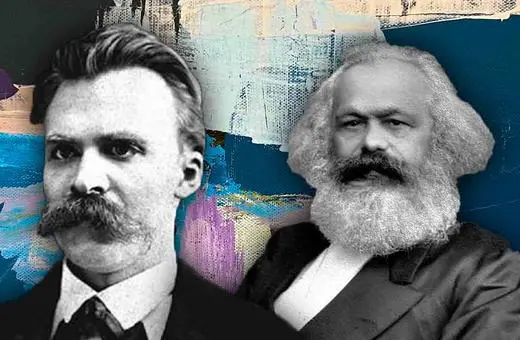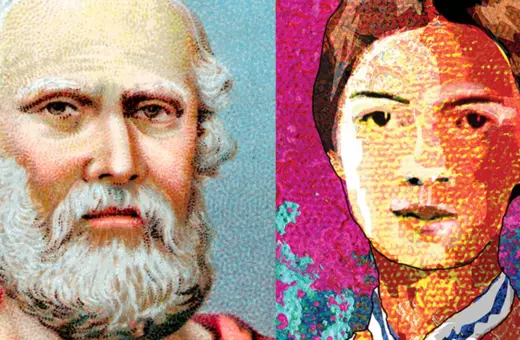Jean-Luc Godard, who passed away on the 13th September, will be remembered as an enigmatic figure and pioneer of French New Wave cinema. Yet his legacy invites a grander question of the cinema’s potential (or perhaps lack thereof) to explore philosophical ideas. Here, Hunter Vaughan explores how Godard used film as a way to ‘perform’ philosophy, before outlining how the contemporary film industry must change in order to realise its full philosophical potential.
Jean-Luc Godard, visionary filmmaker and perennial provocateur, was as conflictual in life as his legacy will no doubt be following his recent death at the age of 91. His oeuvre claims over 130 films as director, though as it spanned over short films, features, television series, digital content, and a variety of meta-textual activities, its quantitative summary is perhaps incalculable. And in a career that moved from flippant pastiche artist to self-branded Maoist to sincere curator of the legacies both positive and negative of moving-image culture, to understand and evaluate his work qualitatively is like trying to pin down an eel in an oil slick. His most superficial triteness held an abyssal profundity, while his audio-visual maxims smacked of dime-store advertising slogans.
___
Casts light on the potential and the limitations for cinema to express philosophical concepts or, even, perform philosophy as an act
___
But while his transparent obsession with the largely white male canon of quotable wisdom often made it impossible to know if his messages were genuine or multi-layered plagiarism, his decades of philosophical meanderings on screen were uniquely authentic in their unapologetic and comprehensive manifestation of a zeitgeist that included Brecht and Bardot, Warhol and Vietnam, John Wayne and Fidel Castro. The dialectical list could proceed with endless referentiality, like an episode of L’histoire du cinema – though formally experimental as a modernist, Godard was definitively postmodern. Or perhaps even eventually post-postmodern, neoclassical in where he landed: digging through his epithets and euphemisms one finds a morphology of thought moving from the obscure to the clear, from deeply cynical nihilism to elegiac lamentation on the need for love in a world that has abandoned meaning and monetized human interactions. Perhaps this is the takeaway from a retrospective on Godard’s constantly self-reflective near-century as a filmmaking cineaste: it casts light on the potential and the limitations for cinema to express philosophical concepts or, even, perform philosophy as an act.
Born into the bourgeois comforts his more radical work would deride (while he himself maintained their privilege), he was a cultural scavenger and iconoclast whose opportunity surfaced at the perfect time and place: postwar Paris. The French capital’s legacy as an international Inter-war sanctuary for high modernist masters from Picasso to Kandinsky to Josephine Baker cast as glimmering a romanticized echo as did the brutal challenge of untangling memory and identity from the recent nightmare of the Occupation, the Collaboration, the Holocaust, and ongoing Colonialism cast a shrouded pall on a city of nostalgic avant-gardism that would become epicentre for the intellectualized film criticism and state-supported European art cinema of the 1960s and 70s.





















Join the conversation